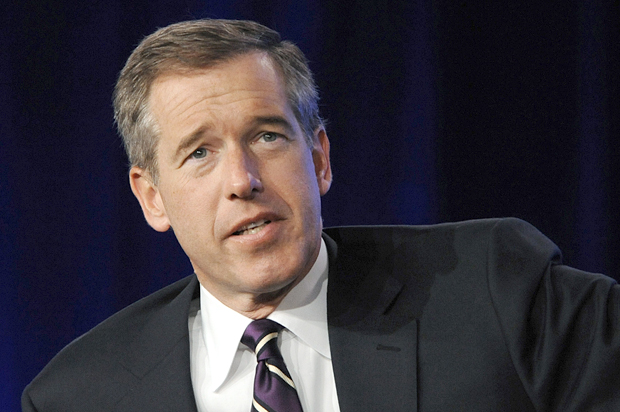NBC News anchor Brian Williams apologized Wednesday evening for what he called a “mistake” in claiming that he was on board a helicopter that struck by a rocket-propelled grenade during the invasion of Iraq, but the veteran broadcaster’s apology still leaves important questions unanswered.
Last week, “NBC Nightly News” ran a segment in which Williams took veteran Tim Terpak to a New York Rangers game, at which an announcer hailed Terpak as “responsible for the safety of Brian Williams and his NBC News team after their Chinook helicopter was hit and crippled by enemy fire” during the 2003 invasion. Williams also related the story of coming under fire during a 2013 appearance on David Letterman’s “Late Show.”
NBC posted its segment to Facebook, where veteran Lance Reynolds, the flight engineer for the helicopter that was shot down, flatly disputed Williams’ claim to have been on board the copter. “Sorry dude, I don’t remember you being on my aircraft,” Reynolds commented. “I do remember you walking up about an hour after we had landed to ask me what had happened.”
In last night’s on-air apology, Williams conceded that he hadn’t been aboard the aircraft. “I was instead in a following aircraft,” Williams asserted. “We all landed after the ground fire incident.”
In a more extensive apology than the one he provided on last night’s broadcast, Williams noted that in a 2008 blog post, he recalled being aboard the following aircraft, not the one that was shot down. “I feel terrible about making this mistake, especially since I found my OWN WRITING about the incident from back in ’08, and I was indeed on the Chinook behind the bird that took the RPG in the tail housing just above the ramp,” Williams said.
Case closed? Hardly. At the time of the invasion, Williams originally reported that he had been “third in line” in a group of copters that came under enemy fire. But as Slate’s Ben Mathis-Lilley highlights, Stars and Stripes, the military newspaper which first reported Williams’ flub, clearly states that not only was Williams not fired upon, he wasn’t even part of the formation of copters.
“Crew members on the 159th Aviation Regiment’s Chinook that was hit by two rockets and small arms fire told Stars and Stripes that the NBC anchor was nowhere near that aircraft or two other Chinooks flying in the formation that took fire,” the paper reported. “Williams arrived in the area about an hour later on another helicopter after the other three had made an emergency landing, the crew members said.”
Also troubling is that while Williams claimed in his 2003 account to have learned of the enemy fire via “radio traffic” and reports “on the ground,” Williams’ 2008 account suggests he saw the fire himself, Mathis-Lilley notes. The journalist now claims that his 2008 version of events is the accurate one, but that still doesn’t jibe with Stars and Stripes’ reporting. Williams continues to confront serious questions concerning his credibility — a perilous position for a purportedly authoritative news anchor.

